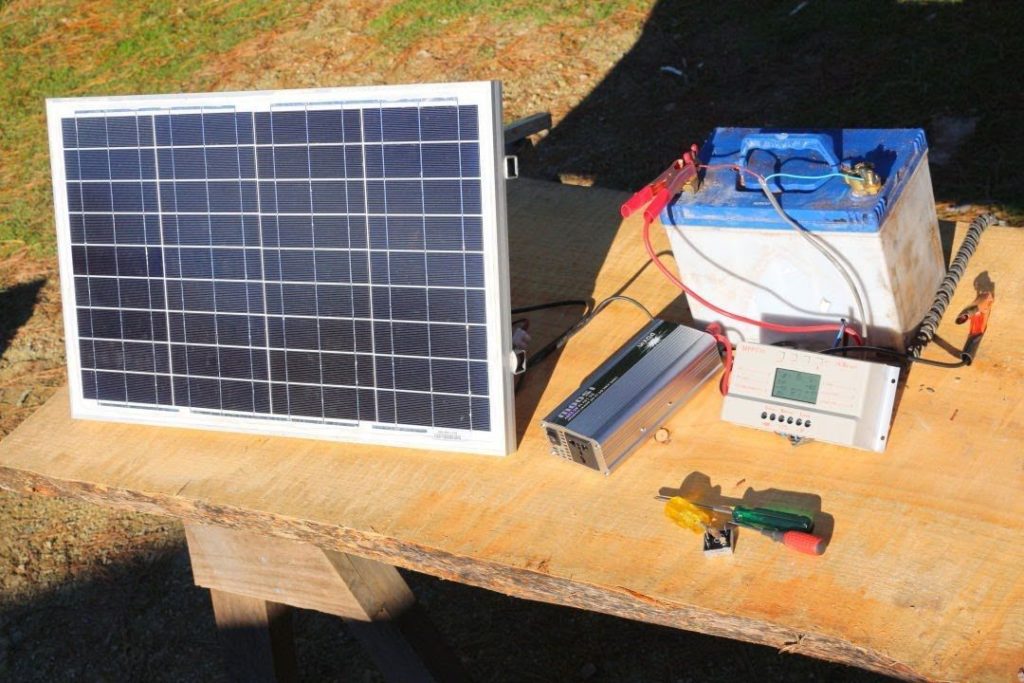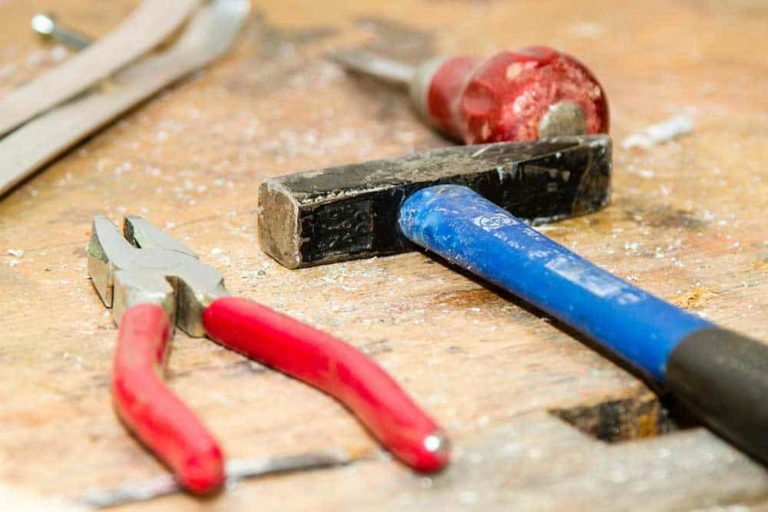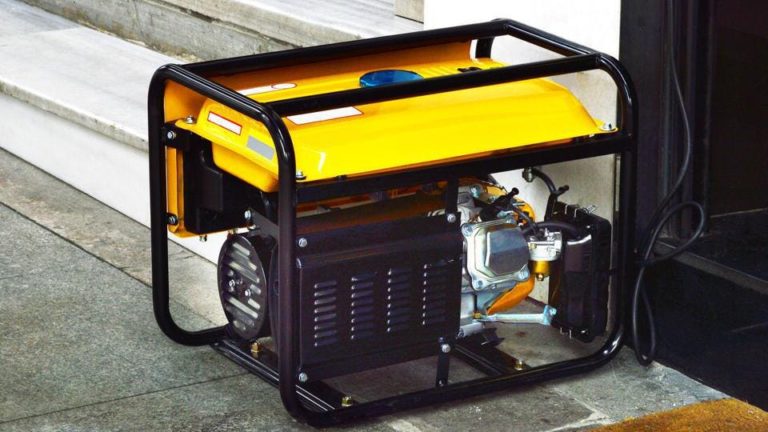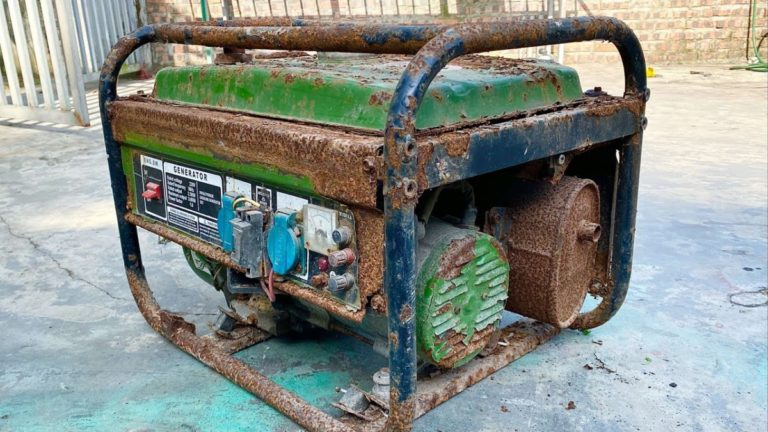If you’re looking to transition your home or business to a reliable and sustainable off-grid power solution, then you’ve come to the right place!
Our comprehensive guide on off-grid inverter setup is designed to provide you with all the actionable information you need to successfully install and maintain your own off-grid solar system.
From selecting the appropriate equipment to wiring and installation, we’ll cover it all in this ultimate guide.
Whether you’re a seasoned DIYer or just starting out, our expert tips and techniques will ensure that you get the most out of your off-grid investment.
So, let’s dive right in!
Determine your energy needs
Before setting up an off-grid inverter system, you need to determine your energy needs. This will help you decide on the size and number of solar panels and batteries you need to power your home or business.
This involves assessing the electrical load of your home or business, including all appliances and equipment, and calculating the total amount of energy you need to power them.
This information will help you decide on the size and number of solar panels and batteries you’ll need to provide a reliable and consistent source of energy.
For example, if you have a 2,000 square foot home with moderate energy usage, you may need a 3-5 kilowatt solar panel system and a battery bank with a capacity of 8-12 kilowatt-hours (kWh) to provide enough energy for your daily needs.
However, if you also plan to power a well pump, a refrigerator, and other energy-intensive appliances, you’ll need a larger system with more solar panels and batteries.
Proper sizing of your off-grid inverter system is important to ensure that you have a reliable and consistent source of energy, and that you avoid wasting money on oversized or under-sized equipment.
By taking the time to determine your energy needs before installation, you can avoid costly mistakes and ensure that your off-grid system meets your power requirements for years to come.
Choose the right inverter
The inverter is the heart of your off-grid system, and it converts the DC power from your solar panels into AC power for your home or business. Choose an inverter that matches your energy needs and is compatible with your solar panel and battery system.
The inverter is the central component of your off-grid solar power system, as it converts the DC power generated by your solar panels into AC power that can be used to power your home or business.
As such, it is important to select an inverter that perfectly matches your energy needs and is compatible with your solar panel and battery system.
Inverters come in various sizes and capacities, ranging from small, standalone units to large, grid-tied systems.
When choosing an inverter, it is essential to consider the wattage of your solar panels, the size of your battery bank, and the power consumption of your appliances to ensure that your inverter can handle the load.
You should look for an inverter that features advanced features such as automatic voltage regulation, overcharge protection, and remote monitoring to ensure optimal performance and longevity of your system.
Proper selection of an inverter can make all the difference in achieving a reliable, efficient, and cost-effective off-grid solar power system.
Select the appropriate battery type
Batteries are an essential component of an off-grid inverter system, and you need to choose the right type of battery for your needs. Deep cycle batteries are best for off-grid systems, and they come in lead-acid and lithium-ion varieties.
When it comes to selecting the right batteries for your off-grid inverter system, it’s essential to choose the appropriate type that meets your energy needs.
Deep cycle batteries are the best option for off-grid systems, and they come in two primary types: lead-acid and lithium-ion.
Lead-acid batteries have been the traditional choice for off-grid systems due to their established manufacturing infrastructure, well-defined performance characteristics, and relatively low cost.
However, lithium-ion batteries have gained popularity in recent years due to their superior performance, longer lifespan, and lower maintenance requirements.
Lithium-ion batteries are more efficient, have a longer cycle life, and require minimal maintenance compared to lead-acid batteries.
They are also much lighter and take up less space, making them ideal for off-grid systems with limited space or weight restrictions.
However, lithium-ion batteries are more expensive than lead-acid batteries, and their manufacturing infrastructure is not as well established, which can lead to supply chain issues and higher costs.
The type of battery you choose for your off-grid inverter system will depend on your specific needs, budget, and preferences.
Lead-acid batteries are a proven technology with lower upfront costs, while lithium-ion batteries offer superior performance and longer lifespan at a higher cost.
It’s essential to evaluate your energy requirements, consider the life cycle costs, and assess the warranty and support offered by each type of battery before making a final decision.
By selecting the appropriate battery technology, you can ensure a reliable and efficient off-grid power supply for your home or business.
Choose the right solar panel
Your solar panel system should be sized appropriately for your energy needs and the amount of sunlight your location receives. Monocrystalline silicon solar panels are the most efficient and durable option, but they are also the most expensive.
When selecting a solar panel system, it is important to consider your energy needs and the amount of sunlight your location receives.
An appropriately sized solar panel system will maximize your energy production and provide a worthwhile investment.
However, selecting the right type of solar panels is just as important.
Monocrystalline silicon solar panels are the most efficient and durable option, as they are made from a single-crystal silicon ingot that is carefully crafted to minimize imperfections and increase efficiency.
These panels can last for up to 40 years and maintain their efficiency throughout their lifespan.
However, monocrystalline silicon solar panels are also the most expensive option, so it’s important to weigh the cost against the benefits.
If you have a modest energy budget and live in a location with plentiful sunlight, monocrystalline silicon solar panels may be the best choice for you.
On the other hand, if you have a limited budget and live in a location with fewer sunny days, polycrystalline silicon or thin-film solar panels may be a more cost-effective option.
Ultimately, selecting the right solar panel system for your needs and budget will ensure a successful and profitable investment in renewable energy.
Install a charge controller
A charge controller regulates the flow of power from your solar panels to your batteries. It prevents overcharging and ensures that your batteries are fully charged.
A charge controller is an essential component in any solar power system, and its primary function is to regulate the flow of power from your solar panels to your batteries.
This important device prevents overcharging, which can damage your batteries and significantly shorten their lifespan.
Overcharging can cause the batteries to heat up, vent gas, and even explode in extreme cases.
By preventing overcharging, the charge controller ensures that your batteries are fully charged and ready to power your home or other equipment.
The charge controller also ensures that the solar panels are not over- or under-utilized, which can lead to inefficiencies and reduce the overall performance of the solar power system.
By maintaining the optimal charging voltage and current, the charge controller helps to maximize the efficiency of your solar panels and ensure that they are operating at their full potential.
The charge controller can monitor the battery’s state of charge and switch to a trickle charge mode when the batteries are fully charged, which helps to prolong the battery’s lifespan and reduce waste.
By selecting a high-quality charge controller that is compatible with your solar panels and batteries, you can ensure that your solar power system is operating at its full potential and providing reliable, clean energy for years to come.
Select the appropriate wiring and circuit breakers
Proper wiring and circuit breakers are important for ensuring the safe and efficient operation of your off-grid inverter system. Consult with a licensed electrician to ensure that your system is installed correctly.
Proper wiring and circuit breakers are important components of a safe and efficient off-grid inverter system.
Incorrect wiring can lead to short circuits, overheating, and even fires.
To avoid such risks, it is essential to consult with a licensed electrician who has experience in off-grid systems.
They will ensure that your system is installed correctly, with the appropriate wiring, circuit breakers, and grounding systems in place.
A licensed electrician will also help you select the right circuit breakers for your system.
Circuit breakers are designed to protect your system from overloads and short circuits, and they come in different sizes and types.
For example, a miniature circuit breaker (MCB) is suitable for smaller systems, while a molded case circuit breaker (MCCB) is better for larger systems.
Your licensed electrician will help you choose the right type of circuit breaker based on your system’s specifications and requirements.
Moreover, a licensed electrician will perform a thorough inspection of your system to ensure that it is properly grounded.
Grounding is critical for ensuring the safe operation of your off-grid inverter system, as it helps to prevent electrical surges and reduces the risk of damage to your equipment.
Your licensed electrician will verify that your system is properly grounded, and they will provide you with guidance on how to maintain your system and address any issues that may arise.
Consulting with a licensed electrician is important to ensure that your system is installed correctly and that it meets all safety and regulatory standards.
With a licensed electrician’s expertise, you can enjoy a safe, efficient, and long-lasting off-grid inverter system.]]>
Proper Wiring and Circuit Breakers for Off-Grid Inverter Systems
When it comes to off-grid inverter systems, proper wiring and circuit breakers are essential for ensuring safe and efficient operation.
Consulting with a licensed electrician is important to ensure that your system is installed correctly and meets all safety and regulatory standards.
A licensed electrician will help you choose the right type of circuit breaker based on your system’s specifications and requirements, and perform a thorough inspection of your system to ensure that it is properly grounded.
Grounding is critical for ensuring the safe operation of your off-grid inverter system, as it helps to prevent electrical surges and reduces the risk of damage to your equipment.
Your licensed electrician will verify that your system is properly grounded, and provide you with guidance on how to maintain your system and address any issues that may arise.
Your electrician can help you choose the right type of circuit breaker for your system, as some circuit breakers are specifically designed for use with off-grid inverter systems.
It’s important to note that improper wiring or the use of inadequate circuit breakers can lead to serious safety hazards and equipment damage.
Therefore, it is important to consult with a licensed electrician to ensure that your off-grid inverter system is installed correctly and meets all safety and regulatory standards.
Proper wiring and circuit breakers are important for ensuring the safe and efficient operation of your off-grid inverter system, and can help you avoid costly repairs and equipment replacement.
Monitor and maintain your system
Regular monitoring and maintenance are essential for ensuring the longevity and optimal performance of your off-grid inverter system. Check your batteries regularly and perform any necessary maintenance tasks, such as cleaning the terminals or replacing the batteries as needed.
Regular monitoring and maintenance are important for ensuring the longevity and optimal performance of your off-grid inverter system.
One of the most critical components of your system is the battery, which requires regular checking and maintenance to function at its best.
You should check your batteries regularly to ensure that they are holding a full charge and that there are no signs of sulfation or other forms of degradation.
You should perform any necessary maintenance tasks, such as cleaning the terminals or replacing the batteries as needed.
Proper maintenance will help extend the life of your batteries and ensure that your off-grid inverter system is running at its optimal level.
Moreover, you should also monitor the inverter and the entire system regularly to ensure that everything is running smoothly and efficiently.
Check for any signs of wear and tear, such as loose connections or overheating, and address these issues promptly.
By keeping a close eye on your system, you can prevent costly repairs and ensure that your off-grid inverter system continues to provide reliable power for years to come.
Consider energy storage and backup options
An off-grid inverter system requires energy storage and backup options to ensure that you have power during periods of low sunlight or other emergency situations. Consider investing in a backup generator or additional batteries to ensure that you have a reliable source of power.
An off-grid inverter system relies on renewable energy sources such as solar power to generate electricity.
However, during periods of low sunlight or other emergency situations, a reliable source of power is important to ensure uninterrupted access to electricity.
To address this, it is essential to consider investing in a backup generator or additional batteries to supplement your off-grid system.
A backup generator can provide a reliable source of power during periods of low sunlight or when the battery storage is depleted.
Additional batteries can extend the backup time of your system and provide a safety net during unexpected power outages.
By investing in energy storage and backup options, you can ensure a reliable and consistent source of power for your off-grid inverter system, thereby minimizing the risks associated with power disruptions and ensuring an uninterrupted supply of electricity.
Want More? Dive Deeper Here!
Hey there! If you’re the type who loves going down the rabbit hole of information (like we do), you’re in the right spot. We’ve pulled together some cool reads and resources that dive a bit deeper into the stuff we chat about on our site. Whether you’re just killing time or super into the topic, these picks might just be what you’re looking for. Happy reading!






